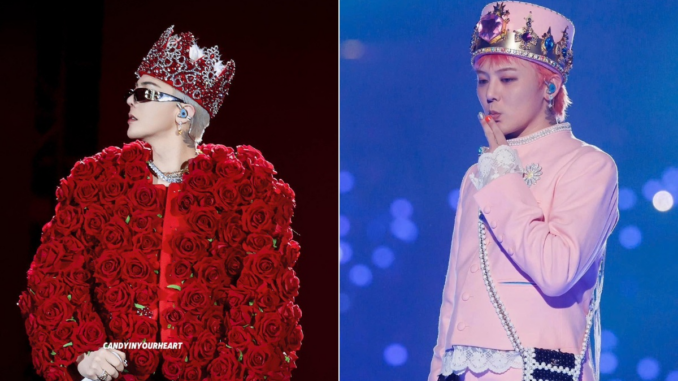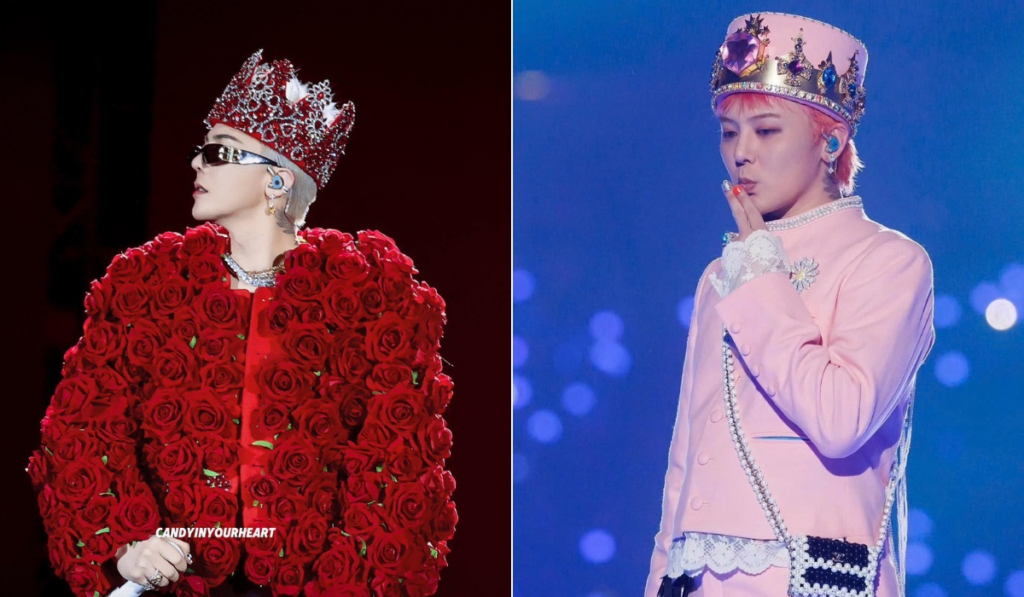

Certainly! Here’s a draft for the article based on the headline:
G-Dragon’s Agency Apologizes for 73-Minute Concert Delay, Cites Safety Concerns: Were These Concerns Justified?
Fans of G-Dragon, one of K-pop’s most iconic figures, were left waiting for over an hour before the artist took to the stage at his recent concert. The 73-minute delay has sparked a flurry of speculation and frustration, prompting his agency to issue an official apology to fans. In their statement, the agency cited “safety concerns” as the primary reason behind the delay, but many are now questioning whether these concerns were justified or if they were simply an excuse for the prolonged wait.
The concert, part of G-Dragon’s highly anticipated tour, had fans eagerly awaiting the chance to see the beloved artist perform live. However, as the minutes ticked by and the audience’s excitement turned to impatience, the event was delayed by an unusually long period. When G-Dragon finally appeared, the agency released a public apology, acknowledging the delay and offering an explanation for the disruption.
“We deeply apologize to all the fans who were affected by the delay of today’s concert,” the agency said in a statement. “The delay was due to unforeseen safety concerns that we could not ignore. Our priority is always the safety and well-being of our artist and the audience, and we appreciate your understanding.”
While the agency’s apology was meant to reassure fans, many were left wondering what these “safety concerns” truly entailed. Some fans speculated that it might have been related to logistical issues or technical difficulties, while others pointed to concerns about crowd control, given the large turnout at the event.
One possibility raised by fans and industry insiders alike is the issue of stage setup and safety protocols. K-pop concerts, especially those involving big-name artists like G-Dragon, are known for their elaborate stage designs, which often include intricate lighting, special effects, and complex sound systems. If any component of the setup were malfunctioning or posed a risk to performers and attendees, it would be understandable that the agency chose to delay the concert for safety purposes.
Another factor that could have played a role in the delay is the massive number of fans attending the event. With large crowds comes the increased potential for crowd-related issues, whether it’s congestion, security concerns, or the need for extra precautions to ensure that everyone remains safe and comfortable. Large-scale concerts often require careful crowd management, and delays can sometimes be attributed to ensuring that safety measures are in place before the show begins.
Despite the agency’s explanation, some fans have expressed frustration over the lack of further details regarding the specific nature of the safety concerns. While it’s clear that the delay was meant to prioritize safety, many are left wondering if the agency could have been more transparent about what exactly caused the postponement. Additionally, the delay comes on the heels of other concert-related issues in the K-pop industry, where fans have become increasingly vocal about delays and the lack of communication from agencies.
On the other hand, some fans have shown understanding, acknowledging that safety must always come first. “I’m just happy that G-Dragon is okay, and I’d rather wait an extra hour than risk something going wrong,” one fan shared on social media. “We all know how crazy things can get at concerts, especially with an artist as big as G-Dragon. I hope everything’s fine now.”
At the end of the day, the situation raises an important question about the balance between fan expectations and safety considerations in the high-pressure world of live performances. While fans understandably want to see their favorite artists perform as scheduled, the priority must always be to ensure that no harm comes to either the artist or the audience.
In the aftermath of the delay, G-Dragon’s fans are now focusing on the successful continuation of his tour. The incident may have left some disappointed, but most fans are simply eager to see their idol perform, hoping that future events will proceed without such disruptions.
As for the agency, their apology may have helped ease some tensions, but they will likely need to provide more transparency moving forward to rebuild the trust of their fanbase. The 73-minute delay, while frustrating, serves as a reminder of the unpredictable nature of large-scale events and the importance of putting safety first, even if it means inconveniencing fans for a brief period.